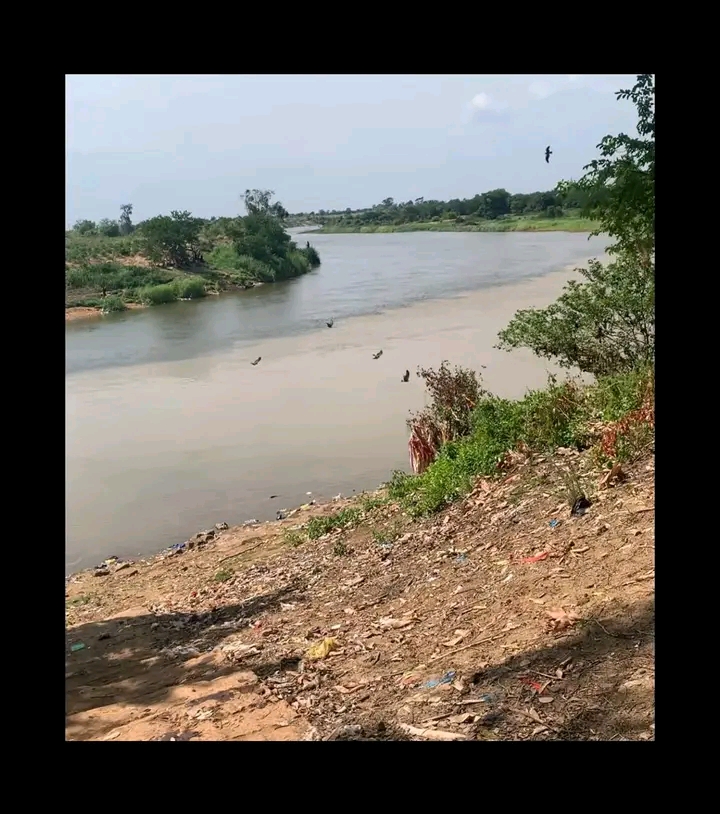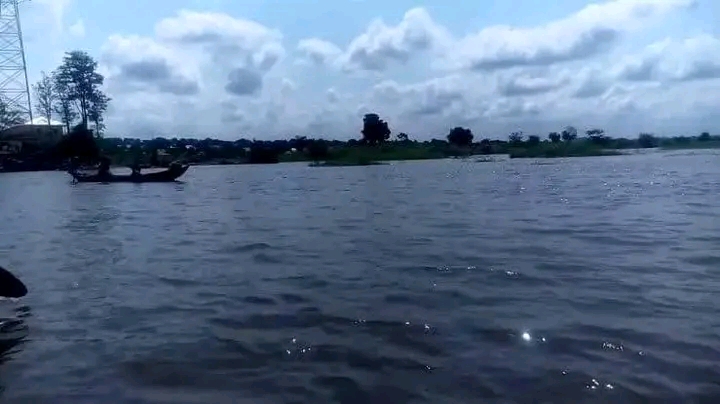River Niger: Revealing Shocking Secrets Behind Omambala River Where 75 Igbo Men Decided Between the Devil and the Deep Blue Sea
River Niger is the biggest River in West Africa, extending about 4,180 kilometers through Onitsha in Anambra State, Nigeria, and forms a confluence with the River Benue to the Atlantic Ocean. According to Wikipedia, the drainage of the River is 2,117,700 km² in area, and its source is in the Guinea Highlands in south-eastern Guinea near the Sierra Leone border. The River Niger was discovered by a Scottish explorer, Mungo Park, in the year 1795. Park in 1796 reportedly traveled from the Gambia region and reached the Niger near Ségou, where he established that the River Niger flows eastward.
However, the acknowledgment of Mungo Park as the discoverer of the River Niger is one among other records by the Colonial Masters that many Indigenous people in Southeast Nigeria, who knew and refer to the River as Orimiri Omambala, had their side to tell, with regards to the indelible incident that occurred during the Stone Age.
The story of Igbo people in the Southeastern part of Nigeria, in West Africa, Africa has survived the passage of time with regards to so many intriguing factors that distinguish them from the myriad of other races in the country and the world at large.
Some Commentators have argued vehemently trying to figure out a link between the Igbo nation and the people of Israel. Little wonder, many went as far as going for DNA tests to validate their claims.
Nonetheless, the undisputable fact remains that Ndi Igbo as they are popularly known are distinctively endowed to strive, survive, and advance for the best wherever they find themselves. Igbo people have from time immemorial been facing challenges and in the year 1803, young able-bodied Igbo men, numbering about 75 had the most difficult options to choose from.
The 75 Igbo men were captured and taken en route to Europe as slaves. Hardly had the journey started when the men got clothed with the atmosphere of premonitions. As a result of the omen and the vicissitudes of life staring them in the eyes, they began to conceive the idea of becoming rebellious.
Meanwhile, as the ship advances in the river, it becomes obvious to the men that they are left with two difficult options to either see the end of the manifestation of their trip by serving in the plantation of servitudes or see the end of the imminent bondage by getting drowned in the river. Thus, after a series of talks among themselves, they chose the latter by rejecting to be in chains in another man’s land.
Unfortunately, too, it dawned on the Master that the men were up to something risky and therefore, he decided to transfer them to another ship.
Some Commentators had recaptured stories of how the men allegedly got rid of their masters and tried to escape when they realized that they were to be transported to a rice plantation which is renowned for brutal work and required strength.
However, as the Igbos were crammed under the deck, and chained together, the crew of the new ship later got tired of them because they were vociferous.
They went in turns to coerce them to shut up, but the Igbos wouldn’t listen. No sooner than later, the crew discovered they were not just boisterous, rather they were chanting in unison. Indeed, it was an unprecedented demonstration that triggered a brutal aftermath. So, as the journey progressed, the chant gained momentum and boosted their morals, which enabled the men to break loose from their prevailing shackles and chains. Consequently, they hijacked the ship.
At this juncture, one would have expected them to sail home to rejoin their family and community members who had already bid them farewell, expressing optimism to meet again across the Rubicon, but the reverse became the case. The smart Igbos knew fully well that they were very far from home, and decided to surrender their souls to the water spirit. But before then, they started a song:
” Orimiri Omambala bu anyi bia”
“Orimiri Omambala ka anyi ga ejina.”
This when translated to English Language means; “The water spirit of Omambala brought us here, the water spirit of Omambala shall take us home”. Thus, they all jumped into the river and dived home, home to rest in peace.
Little wonder, to date, there are claims that the souls of the revolted Igbo men who were on the verge of being taken into servitude still dwell in Dunbar Creek. For in the quietness of the night, and when the blue planet goes asleep, one could still hear the sonorous voices of the men, and like a pregnant whirlwind, their distant ‘Orimiri’ chants resonate and envelope the entire land.
According to a Nollywood Icon, Pete Edochie in an interview, those souls still call for befitting burial rites to be able to unite with their ancestors in their various hometowns.

Credit: Igbo History TV
